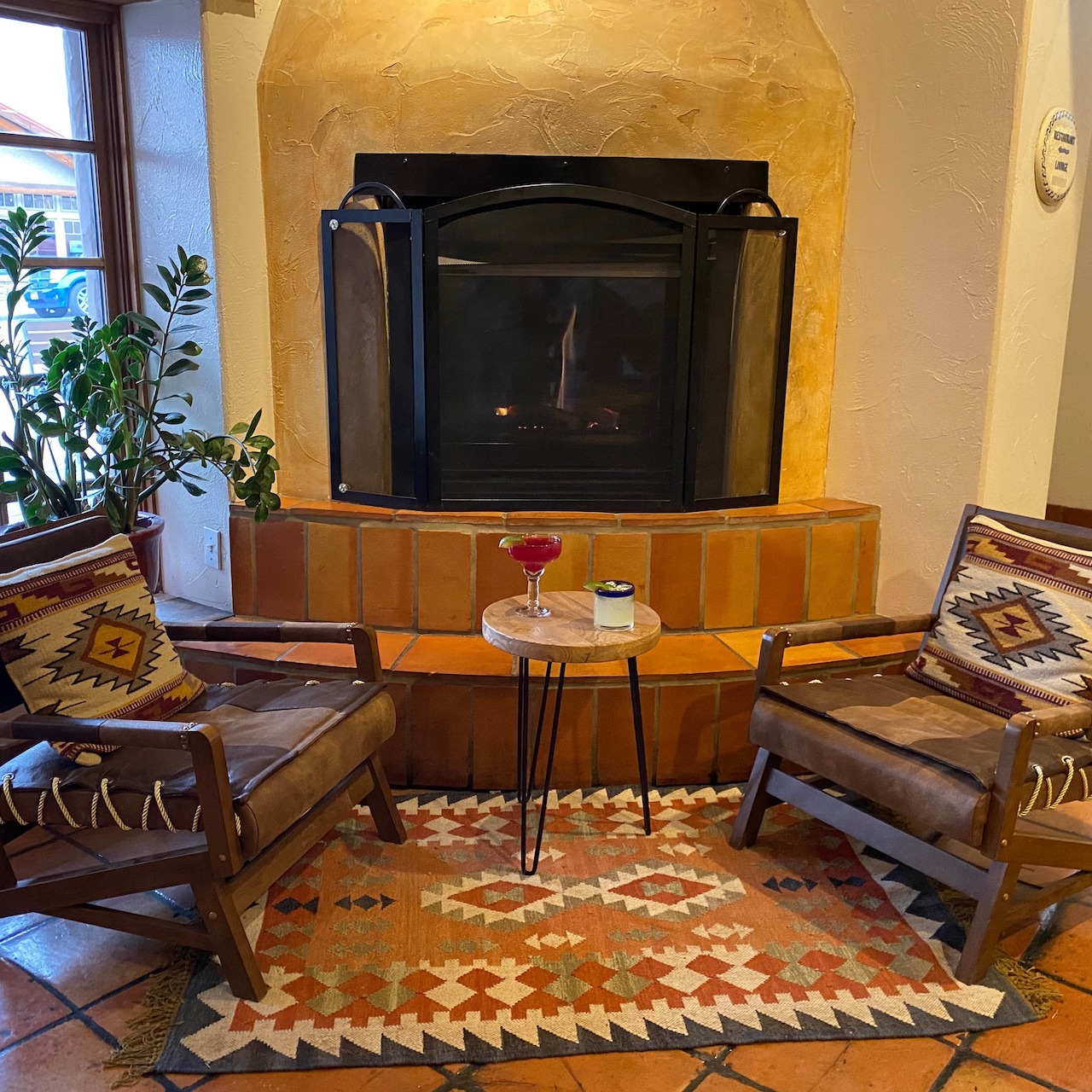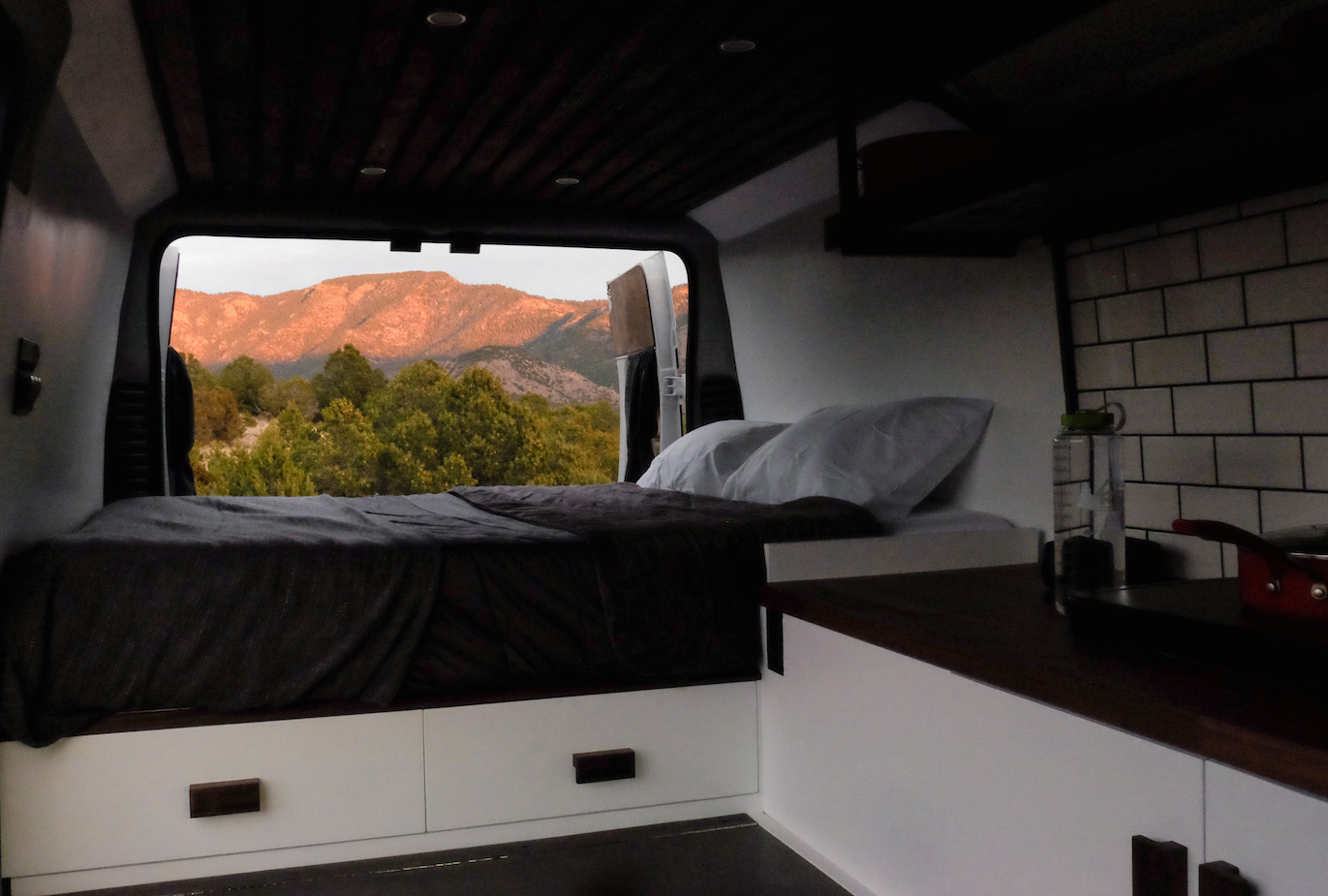To some, camping and technology benefit each other. To others, technology is the antithesis of camping. Either way, the further we move toward a technophilic world, the more technology is developed or used to enhance our recreational activities. In Colorado, camping is one of the pursuits that makes it such a desirable place to live, along with friendly people, legal weed and plenty of jobs. Which is why there is a growing field of companies who are embracing the convenience of our modern world to improve our interaction with the natural world. Three, in particular, are revolutionizing what it means to camp — Fluid Market Sharing App, Native Campervans and Hipcamp — described below.
Rent Your Gear: Fluid Market

Fluid Market began when the founder James Eberhard — a Colorado Native — was looking for a tool to fix something in his house but didn’t want to go to Home Depot to buy it for a single use. So he walked door-to-door around his neighborhood, asking if any of his neighbors had the tool, eventually finding someone who did. This inspired him to create a community sharing app where people could do this without walking door-to-door.
Basically, the app provides a middle-man platform to be able to rent out gear to people near you or on the other hand, to rent gear from people near you. The interface is simple and easy to navigate, with pictures of any of the items available to rent and the price clearly stated. You’ll find things like trucks, tents, camping pads, bike pumps, SUP boards, kayaks, camping chairs, lanterns, coolers and anything else you’d need for a well-equipped adventure. (Or a giant bouncy castle, if an occasion calls for that.)
Think of Fluid Market as the AirBnB of stuff. It’s a way to lessen the impact of consumption by sharing things people aren’t using but have already purchased. And it’s a smarter financial move — you can either make money off your stash of gear, or you can save money by renting something instead of buying it. Renters set their own rate, with some general suggestions and guidelines from Fluid Market. Mainly, they ask that the item to be rented is set at 5 to 10 percent of the retail price, or if someone else rents that item near you (like Home Depot and their trucks), it’s priced well below that rental rate. Renters can feel comfortable renting their expensive equipment because Fluid Market has a hefty insurance package for everything that’s rented through their app.
With 10,000 users and over $30 million in inventory, Fluid Market is a more viable way to source and use your gear every day. Camping on a budget is now even more possible, and all those summer music festivals that usually break the bank can become more affordable and enjoyable with some rented gear. (Check out Fluid Market’s blog about music festivals here.) Some examples of items that are currently being rented in Denver are:
- Atoll Standup Paddleboard for $10/hr
- Coleman Chest cooler for $7/day
- Rock climbing rope, 10.2mm x 60 m for $20/day
- Four river tubes with a pump for $5/day
- Fixie bicycle for $10/day or $60/week
- 10 x 10 pop-up tent for $12/day
Borrow a Camper: Native Campervans
Another Colorado-based company, Native Campervans, is owned by two Denverites — Dillon Hansen and Jon Moran. Four years ago, they took a trip to New Zealand and rented a campervan. After coming back they realized that nothing like that existed in Colorado, even though there was demand for it. Now, with a fleet of 13 vans in two different sizes — categorized as the “Biggie” and “Smalls” — they are looking to expand the van lifestyle in Colorado with more vans.
Hansen reported that about 30 percent of their business comes from international travelers, and most of the rest comes from out-of-state visitors. At 303 Magazine, we tried one of their “Biggies” for a quick 24-hour solo adventure (read about that here) and discovered that more Coloradans could benefit from renting these vans. Aside from the safety and comfort of using a campervan to camp, these vans also create an entirely unique ambience to the camping experience. Each of the vans has a one-of-a-kind interior, designed by Jon Moran with the help of Vanlife Customs owner Dave Walsh.
Outfitted with a seven gallon potable water system (and gray-water disposal tank), a mini-fridge, a propane camping stove, all utensils, dishes, knives and cooking equipment, two camping chairs and a camp table, a mattress with sheets, a fleece blanket and a bluetooth speaker, any trip borders on the edge of glamping. But, with either the Biggie or Smalls, there is plenty of clearance to take the vans to dispersed campsites and at least rough it a little bit.
Winter (November – March) Biggie $145/night. Smalls $85/night
Spring (April – May) Biggie $185/night. Smalls $85/night
Summer (June – September) Biggie $215/night. Smalls $109/night
Fall (October – November) Biggie $185/night. Smalls $85/night
Book a Campsite: Hipcamp
Hipcamp started in 2013 as a website dedicated to gathering information in one place about public campgrounds across the country. Now, the website is a database for all National, State, Regional and Army Corps Parks in all 50 states, as well as a place where private landowners can rent spaces for RV, car camping and tents. Altogether that’s 10,026 campgrounds and 294,075 campsites. In 2015 they began partnering with private landowners in Colorado and now provide 544 active listings within the state, both public and private combined.
This database is fast becoming the go-to place to find a place to camp. Not only does the website allow you to search for campsites by state, it also has filters for pricing, group size, amenities, activities and terrain. Hipcamp wants to make outdoor recreation and the sustainability of those activities more easily accessible by making the information easily accessible and gathered in one place. The main mission, from their website, is to, “Get more people outside and, more specifically, to inspire the next generation of people who are passionate about exploring and protecting our lands… [Hipcamp] are firm believers that people will only protect what they connect to and care about.”
These campsites and campgrounds are a new way for Colorado residents to travel within their own state, especially with options like the Sol Mountain Farm Teepee and Tent sites, Kurt’s Yurts and the Holy Cross Refugio backcountry cabin. But also, just having access to an easily navigable database of public and private spots to camp simplifies the preparation needed to have an outdoor adventure these days. Don’t drive around hoping to find a drive-in spot on a busy summer weekend and instead look through the hundreds of options that Hipcamp offers for Colorado.
—
The bottom line is that more people continue to camp in Colorado and the resources that are currently available are not enough. These three companies especially seem to aim their business at millennials who want an experience different than the pre-made campsites at National Parks or who want to lessen their impact by sharing and leaving no trace.






